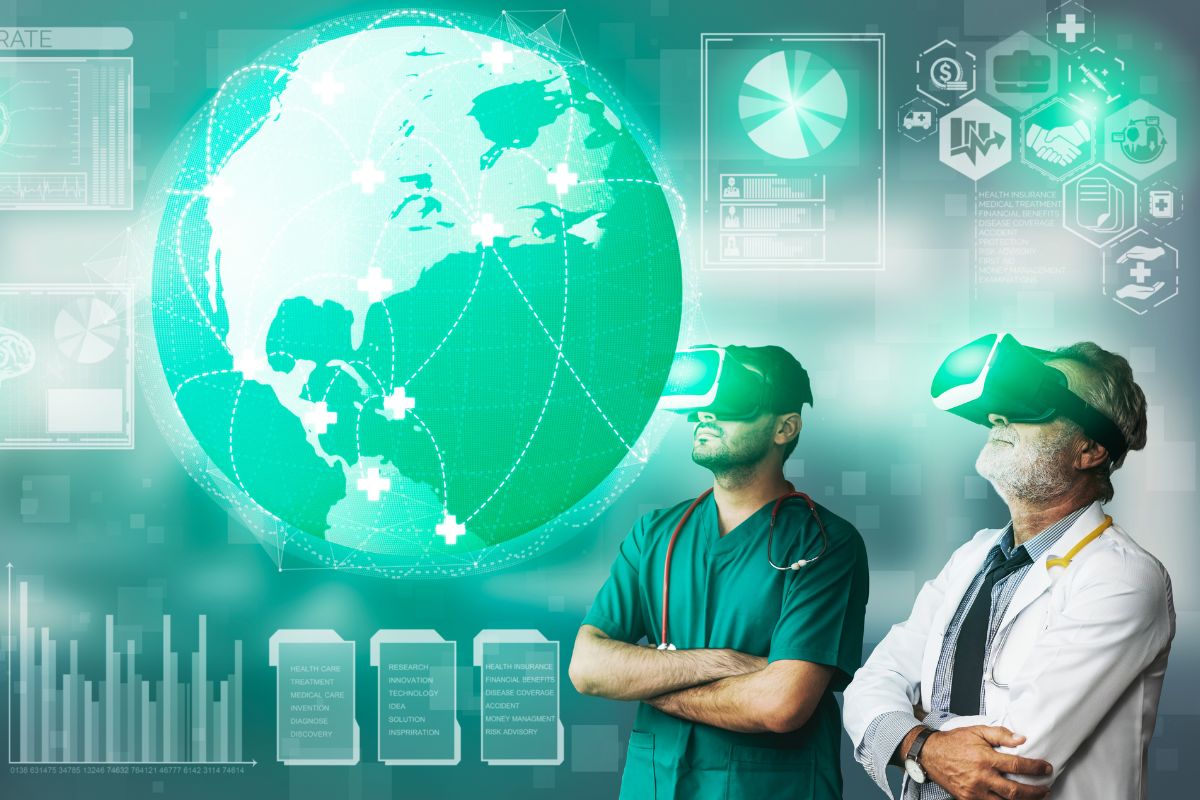Virtual reality is revolutionizing healthcare. It creates immersive, realistic environments for medical training, facilitating unprecedented precision and efficiency. The technology also offers therapeutic applications, enabling effective treatments for conditions like PTSD and phobias.
As this technology evolves, the role of every VR development company partnering with healthcare institutions becomes increasingly significant, opening new avenues for patient care and medical training. In essence, these companies are integral in shaping the future of healthcare.
The Evolution of VR in Healthcare
The use of virtual reality in healthcare has a rich and varied history. Initially, in the late 20th century, VR was seen as a tool to help psychologists treat phobias and anxiety disorders, offering safe, controlled environments for exposure therapy. As technology advanced, the role of a VR development company became critical in enhancing healthcare applications.
In the early 2000s, a significant breakthrough came when VR development companies began creating sophisticated simulations for surgical training. These VR platforms enabled surgeons to practice complex procedures in a risk-free environment, significantly improving their skills and precision.
In recent years, VR development companies have been instrumental in developing applications for patient rehabilitation, pain management, and therapeutic interventions. The advent of immersive VR environments has revolutionized therapy and recovery programs, improving patient outcomes significantly. The continual advancements signify the remarkable evolution of VR in healthcare, highlighting its potential to reshape the industry’s future.
Current Applications of VR in Healthcare
Today, the applications of virtual reality in healthcare are vast and diverse, thanks to the innovative solutions provided by VR development companies.
In surgical training, VR companies have designed simulation platforms that offer an immersive, risk-free environment for surgeons to hone their skills. For instance, Osso VR, a leading VR development company, provides a surgical training platform that’s used globally, improving patient outcomes and the performance of surgical teams.
Another significant application lies in inpatient therapy and rehabilitation. A company named MindMaze has pioneered a VR system that assists in the recovery of stroke and spinal cord injury patients. This technology allows patients to engage in virtual tasks, encouraging neural recovery in a stimulating environment.
VR development companies have developed solutions for pain management that use distraction therapy to help patients cope with pain. For example, AppliedVR’s platforms are used in hospitals to help reduce anxiety and pain without medication.
The Impact of VR on Patients and Healthcare Professionals
It is essential to notice that VR profoundly impacts patients and healthcare professionals. For patients, VR offers several benefits. Distraction therapy, for example, utilizes VR to divert patients’ attention during painful procedures, reducing their discomfort. Furthermore, VR’s immersive environments can aid physical and cognitive rehabilitation, enhancing recovery.
For healthcare professionals, VR has emerged as a powerful training tool. Surgeons can practice procedures in a simulated, safe environment, enhancing their skill set. This technology also facilitates improved patient interaction, as practitioners can use VR to explain complex systems to patients, improving understanding and reducing anxiety.
Future Prospects of VR in Healthcare
The future of virtual reality promises incredible advancements. Prospective applications include remote surgeries using VR and robotics, advanced mental health therapies, and even detailed visualizations of the human body for research and education.
However, challenges are inevitable. Data privacy and ethical concerns surrounding VR require careful consideration. Moreover, ensuring universal accessibility to VR technology might pose another hurdle.
To address these issues, VR development companies must work closely with healthcare professionals, lawmakers, and ethics committees. They will need to establish robust security measures for data handling and strive to lower the costs of VR solutions, making them accessible to broader populations. By overcoming these challenges, VR development companies can unlock full VR’s healthcare potential.
Summing Up
The role of VR development companies in the healthcare sector is undeniably transformative. Their advancements have facilitated many applications, from immersive surgical training to therapeutic interventions and patient rehabilitation. These companies have designed a suite of solutions that not only enhance patient outcomes but also equip healthcare professionals with innovative tools for training and patient interaction.
Looking to the future, VR holds tremendous potential. We envision a landscape of remote surgeries, in-depth anatomical explorations, and advanced mental health therapies, all facilitated by VR technology. However, this landscape is not devoid of challenges, such as data privacy concerns, ethical implications, and the task of ensuring universal accessibility to this technology.
As we move forward, it becomes increasingly vital to encourage further exploration and research into VR’s potential in healthcare. The role of VR development companies is paramount in this regard. By overcoming the impending challenges and capitalizing on the opportunities, these companies will be at the forefront, shaping the future of healthcare and, thereby, significantly impacting the lives of millions.











